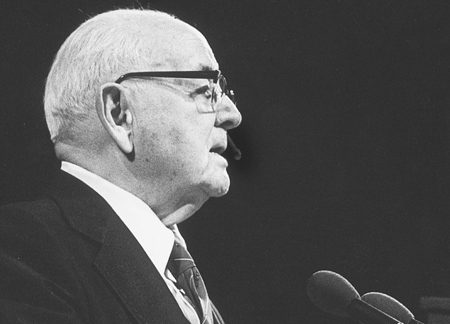
Compare Mark 9:41; Luke 10:16; John 5:23; 12:44-45; 13:20
The principle that whoever receives Jesus’ authorized representatives receives him, and that whoever receives him receives his Father — something of a theological or ecclesiological version of the transitive property of equality in mathematics — is fundamental to the Latter-day Saint view of the Church, or, more specifically, of the Priesthood. (And, in this respect, it’s somewhat reminiscent of the view of the role of priests held in the Roman Catholic and Orthodox and other non-Protestant Christian traditions.)
“Whether by mine own voice or by the voice of my servants, it is the same” (Doctrine and Covenants 1:38).
“For his word ye shall receive,” says the Lord of the president of the Church, “as if from mine own mouth” (Doctrine and Covenants 21:5).
“A prophet needs to be more than a priest or a minister or an elder. His voice becomes the voice of God,” said President Spencer W. Kimball. (n Conference Report, April 1970, p. 120).
Ending a talk in Church “in the name of Jesus Christ” isn’t just respectful religious end-punctuation. It’s a very serious claim, and should be approached with solemn reverence and care. Everybody in such circumstances, whether priesthood-holder or not, is capable of speaking on behalf of God and should make every effort to say what would be pleasing to the Lord and according to his mind and will. To do otherwise is — in perhaps a more serious sense than mere profanity — to take the name of the Lord in vain.











